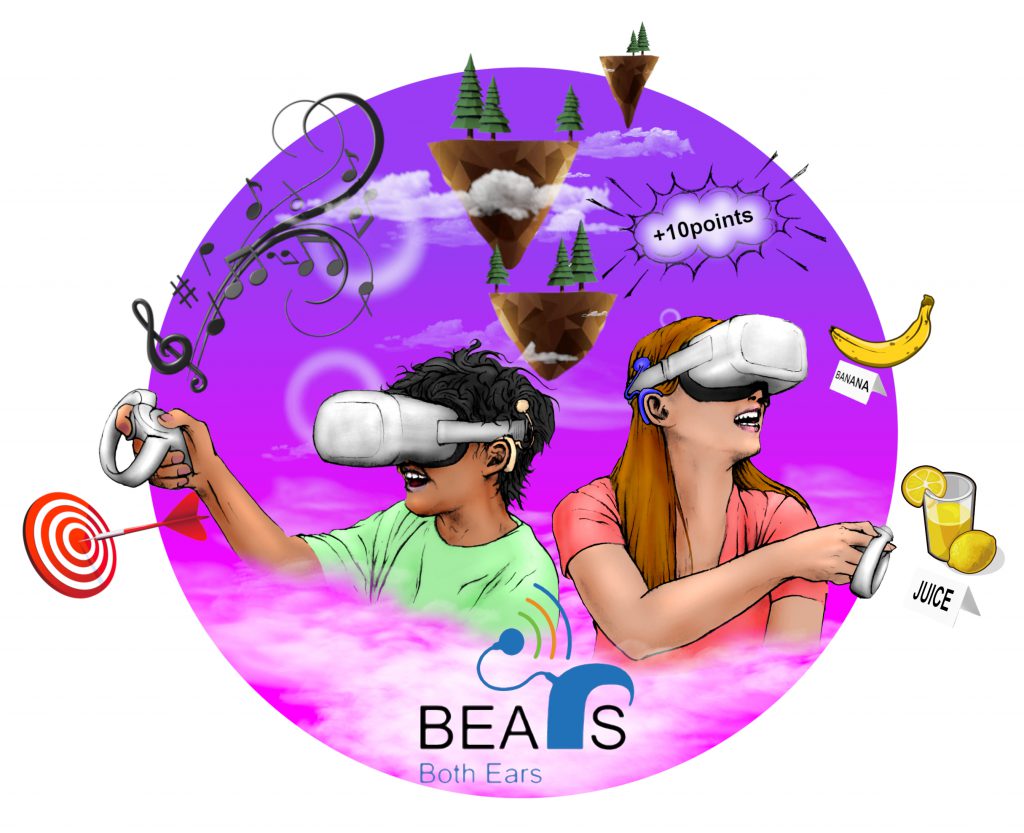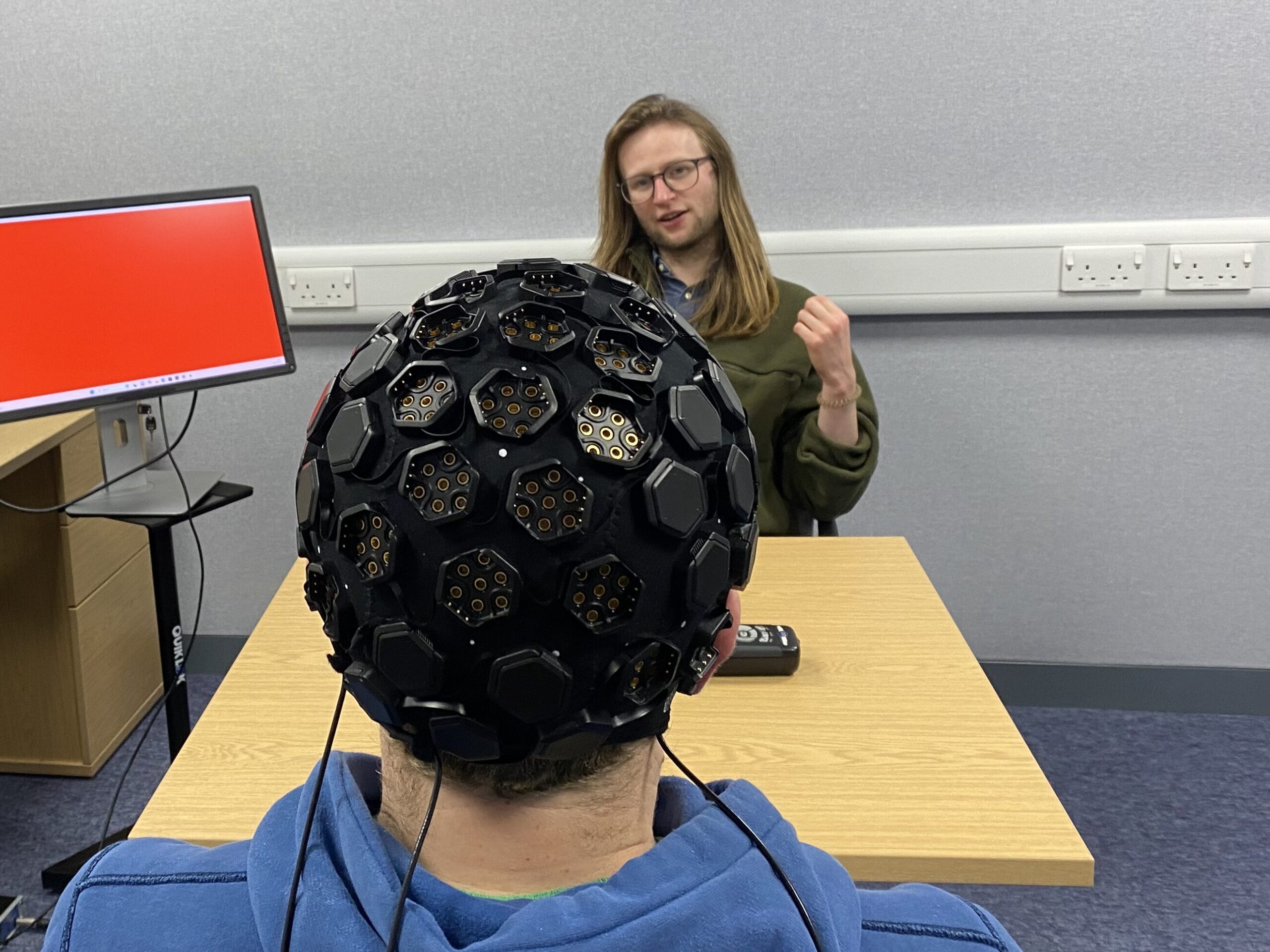
MRC Senior Fellowship Hearing Research (MR/S002537/1)
Developing electrophysiological measures of brain activity to optimise cochlear implant (CI) outcomes
Objective 1: Understand variations in cortical responses to CI stimulation
Objective 2: Measure brain adaptation and reorganization following CI activation
Objective 3: Evaluate re-mapping based on cortical responses
Objective 4: Measure neural indicators of binaural integration from bilateral implants

Both EARS training package (BEARS) to maximise hearing abilities in teenage bilateral cochlear implant users
The BEARS project is funded by the National Institute for Health Research (NIHR) and is led by Dr Deborah Vickers. The project is evaluating a package of virtual-reality games to train spatial hearing in older children and teenagers with bilateral cochlear implants. We are trying to determine if use of the BEARS games improves everyday hearing, quality of life and is cost-effective.
To learn more you can visit our BEARS website or our BEARS twitter
If you are interested to know how we developed the BEARS games using input from young people with bilateral cochlear implants please check our recent journal publication

fNIRS for Ears
We use a brain imaging technique that uses light to map activity in the brain, which is called functional near-infrared spectroscopy, or fNIRS for short.
To do an fNIRS scan, someone wears a cap on their head, which lets us see what’s going on in the brain during everyday activities.
We have two main strands of research with fNIRS, looking at both babies and adults.
Cognition & hearing
The way we think about & understand the world is called cognition. Cognition is affected by how we sense our world, and we’re interested in how cognition could be impacted by hearing loss. For instance, there is a link between hearing loss and risk for dementia, and we’re interested to see what brain processes could be linking cognition and hearing.
EarDOT
We will be leading research to investigate how the baby brain develops and adapts following cochlear implant surgery.
Characterizing and alleviating distortions in sound and music quality in adults using cochlear implants
This project investigates how music can aid in the characterization and alleviation of certain distortions that occur during cochlear implant processing, such as monaural and interaural frequency-to-place mismatch.
Our clinical tests are based on the concept of music re-engineering, which aims to measure the impact of pre-modification of sound on potential distortions.
Our research project has two main objectives:
- Provide clinicians with new tools that can help them better understand and target the challenges faced by their patients in their daily lives, particularly when it comes to their perception of music.
- Optimize the care of every individual cochlear implant user, ensuring that they can make the best use possible of their implant and, potentially, rediscover the simple joy of appreciating a piece of music.
Speech and Music Perception with a Smartwatch
This project investigates how music can aid in the characterization and alleviation of certain distortions that occur during cochlear implant processing, such as monaural and interaural frequency-to-place mismatch.
As a patient, you may be aware that looking at a speaker’s lips while listening can significantly enhance your understanding. This remarkable effect is supported by your brain’s capacity to combine and optimize multiple senses – here, hearing and sight – particularly in challenging listening environments.
In this project, we aim to integrate the sense of touch (often referred to as “haptic”) with your cochlear implant to help you understand speech more clearly, reduce listening effort, and even enhance music perception.
The underlying idea is to capture sound, transform it into vibrations, and deliver these cues through a smartwatch.
While many researchers have shown that such improvements are possible using specially designed wristbands, we believe we can achieve comparable benefits with a regular smartwatch—one you may already own!
If you have a cochlear implant and are interested in this project, don’t hesitate to contact us!
